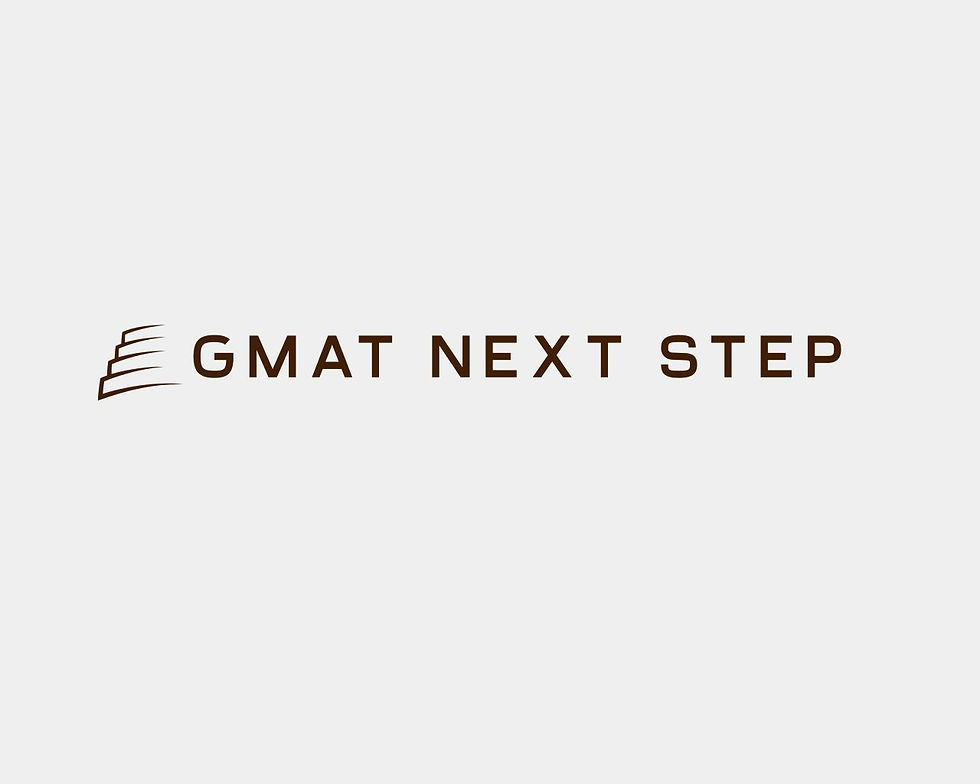How Non-Native Speakers Can Improve Their GMAT Verbal Score
- Claire Nguyen
- May 24, 2025
- 3 min read
Let’s be honest: GMAT Verbal is tough for everyone. But as a non-native speaker, you’re dealing with double the challenge—not only do you have to untangle complex ideas, but you also need to train yourself to spot the GMAT’s sneaky logical traps. So, how do you actually improve your Verbal score?
First things first: you can’t cram for Verbal. Unlike Quant, where a few formulas and strategies can give you a quick boost, Verbal is all about developing instincts—and that takes time. Here’s my bold suggestion: even if you’re not sure whether you’ll take the GMAT yet, start building strong reading habits now. Why? Because sharp reading skills don’t just help you on standardized tests; they’ll make you a better thinker, communicator, and professional in the long run.
Why Verbal Takes Longer to Master Than Quant
With Quant, a good tutor can walk you through key formulas and problem-solving techniques in a few sessions. But Verbal? It’s less about memorization and more about training your brain to process language quickly and critically. GMAT Reading Comprehension passages throw dense, varied topics at you, packed with tricky sentence structures and subtle arguments, while GMAT Critical Reasoning test your ability to understand an argument’s logic and make reasoned judgements from your understanding.
Now, here’s the thing: a tutor can absolutely help—by guiding you on strategy, pointing out patterns, and keeping you accountable—but you have to put in the work to build those reading muscles. Think of it like going to the gym: a personal trainer can design the best workout plan, but if you don’t show up and lift the weights, you won’t see progress.
What Should You Read?
You don’t need to force yourself through dry, boring material. Instead, pick sources that actually interest you—because the more engaged you are, the more naturally you’ll absorb the language. Here are some of my top recommendations:
High-Quality News & Magazines: The Economist (fantastic for long GMAT-like passages), The New York Times, Financial Times, The Atlantic (great for deep dives into complex topics), Scientific American/National Geographic (if you want to get comfortable with science-heavy passages).
Business & Academic Journals: Harvard Business Review, MIT Technology Review—in -depth posts about management/business and technology respectively.
Books: Non-fiction like Sapiens or Freakonomics can make learning feel less like studying and more like expanding your mind.
My advice? Pick 2-3 sources you genuinely enjoy and commit to reading one article/20 minutes a day. Swap out your social media scrolling for a quick read—it adds up faster than you think.
Read Like the GMAT Is Watching (Because It Is)
Don’t just skim passively. Active reading is the key. As you go through an article, ask yourself:
What’s the main idea? (Try summarizing it in one sentence.)
What’s the author’s tone? Neutral? Critical? Passionately opinionated?
How is the argument structured? Is it presenting two sides, or just one? Is it factual or persuasive?
Bonus exercise: After finishing, try explaining the piece out loud (or jotting down a quick summary). It’ll force you to process what you’ve read, not just recognize words.
Oh, and if you stumble across unfamiliar words, jot them down—but don’t stress over super technical terms. The GMAT isn’t testing your knowledge of niche vocabulary; it’s testing whether you can understand context.
Once You Start Official GMAT Prep…
Stick to official GMAT questions (from the Official Guide). It is difficult to completely replicate the feel of a Verbal question using third party sources.
Find a Verbal strategy resource (or tutor) that clicks with you. Some explanations just make sense to certain people—don’t settle for a method or framework that leaves you more confused.
The Bottom Line
Improving your Verbal score takes effort, but the payoff is huge—not just for the GMAT, but for your future coursework and career. And here’s the best part: there’s no ceiling to how much you can improve. The more you put in, the higher your score can go.
If you’re feeling stuck or just want a tailored game plan, I’d love to help. I’m a GMAT tutor who’s been through this grind myself, and I work with non-native speakers all the time to break through their Verbal plateaus. [Book a free chat with me here] or or send me a message to see how we can get you to your goal score.
Happy reading—and remember, every page you turn is a step closer to acing Verbal!


